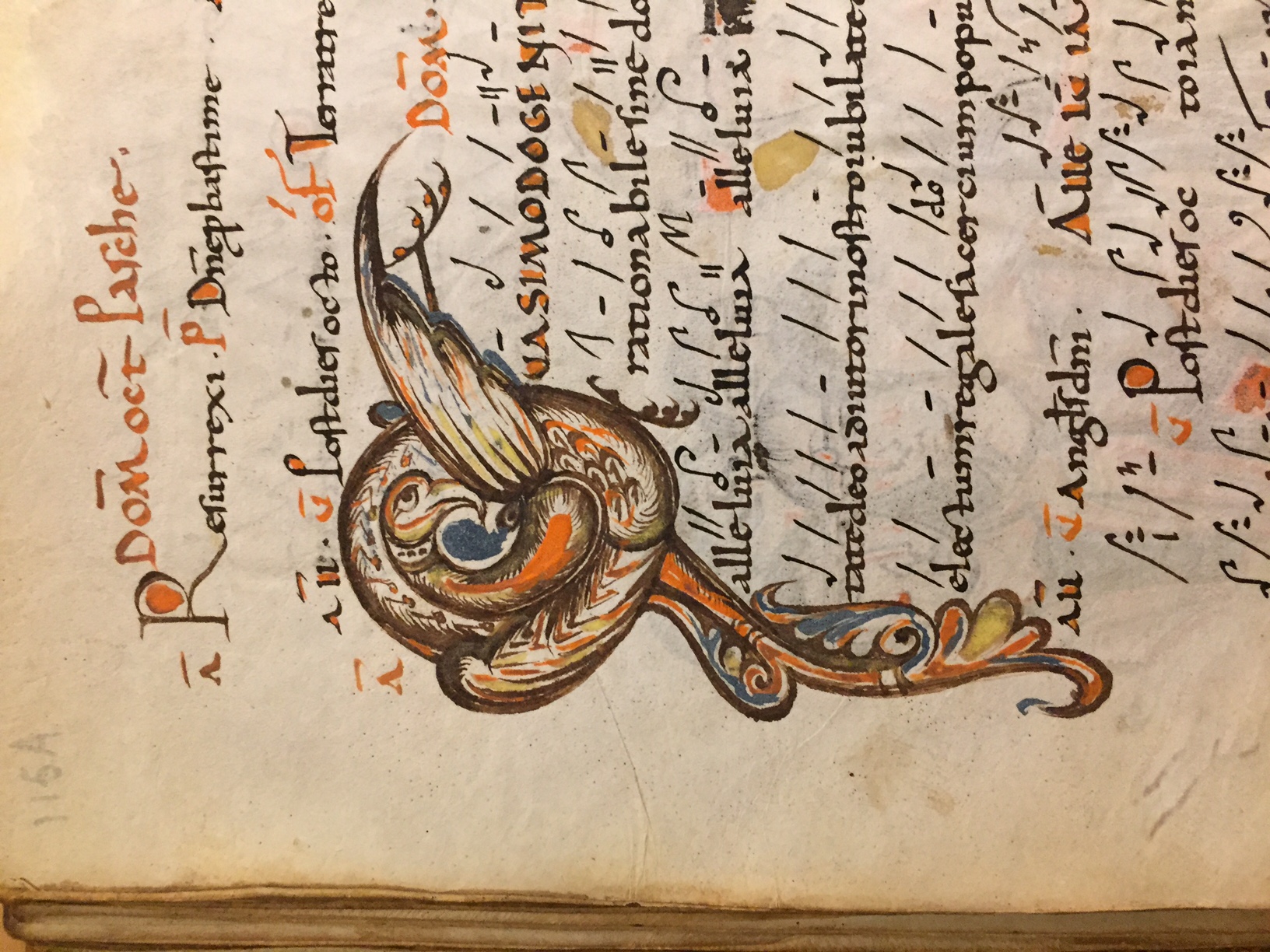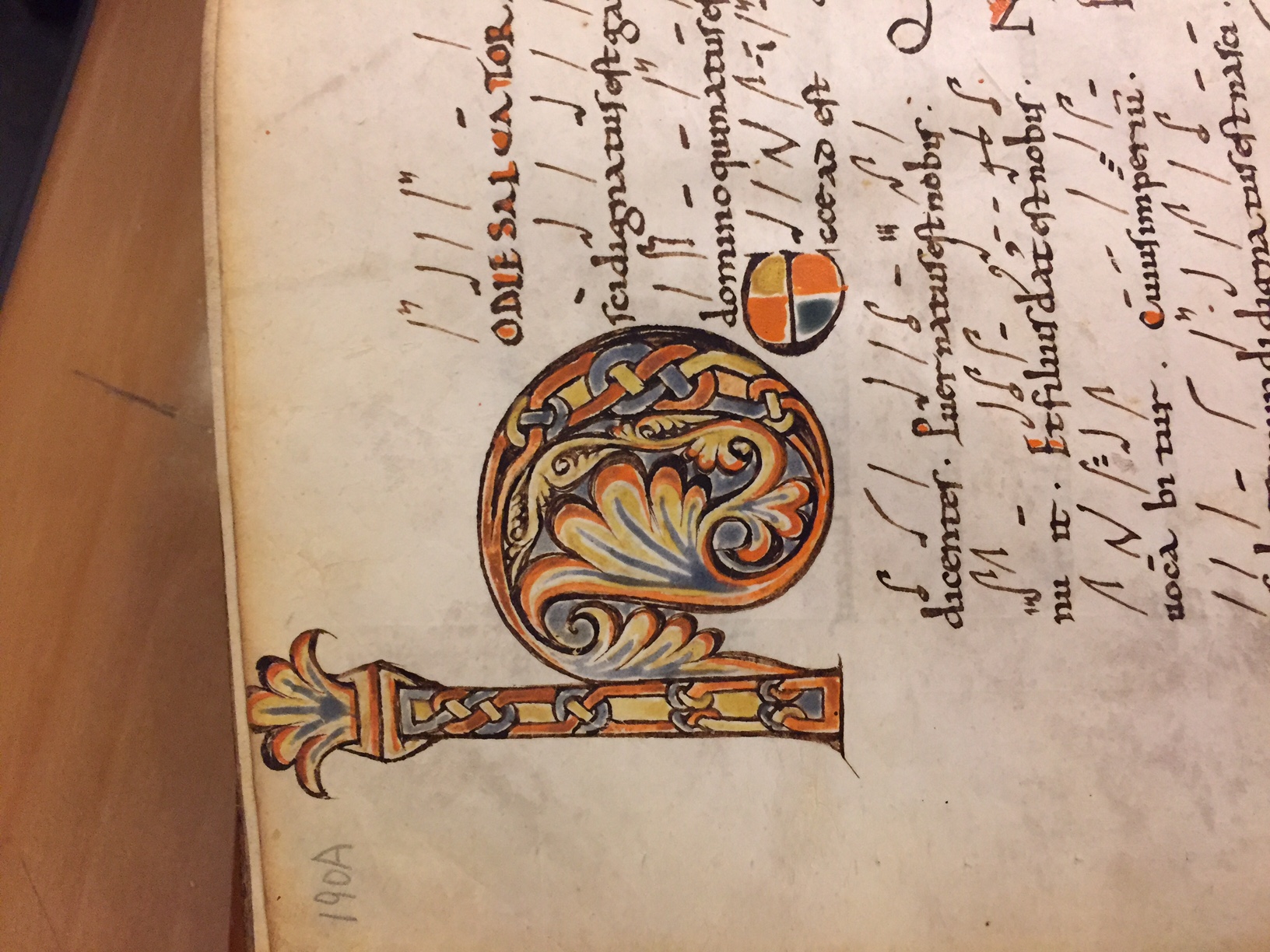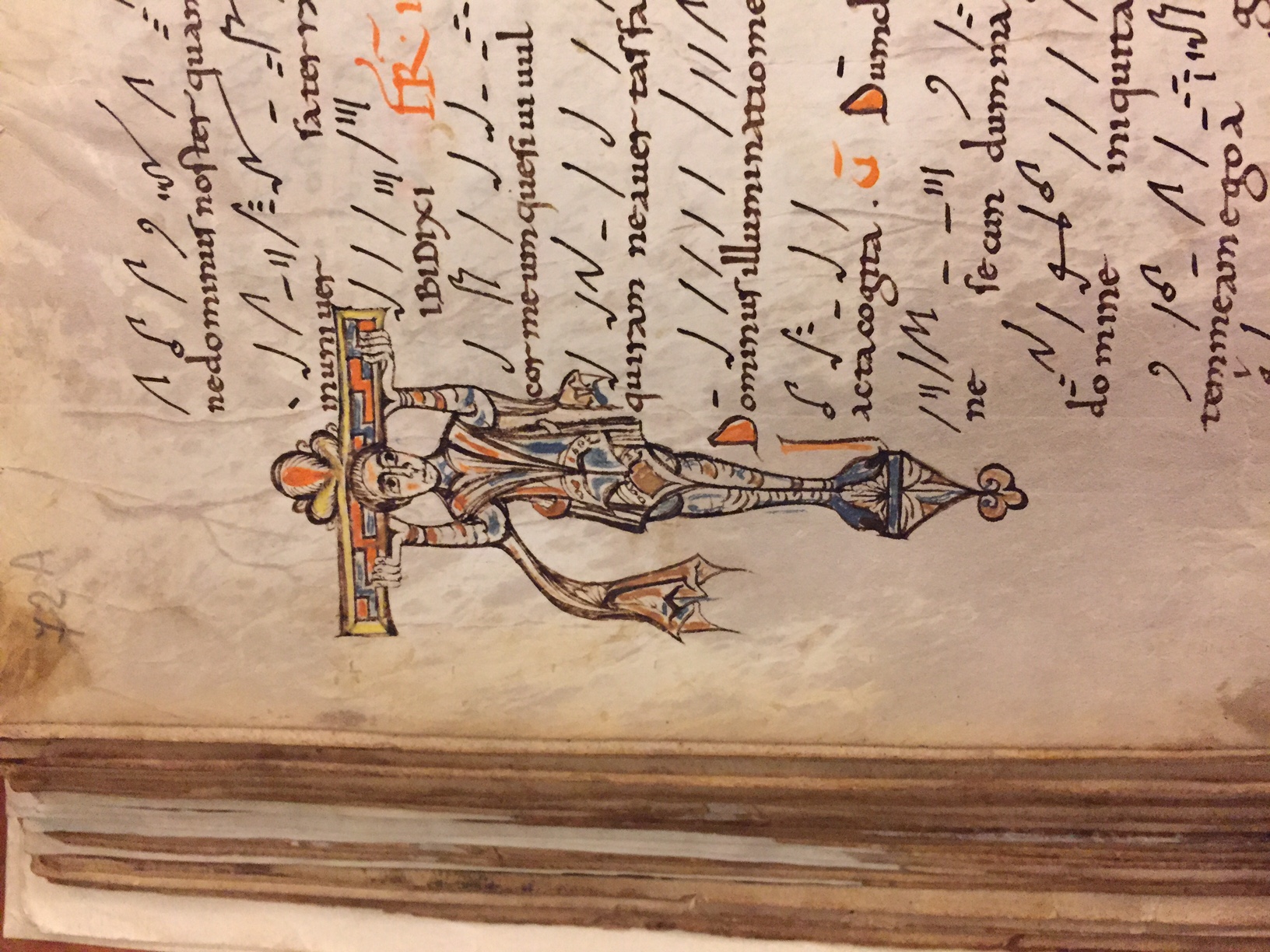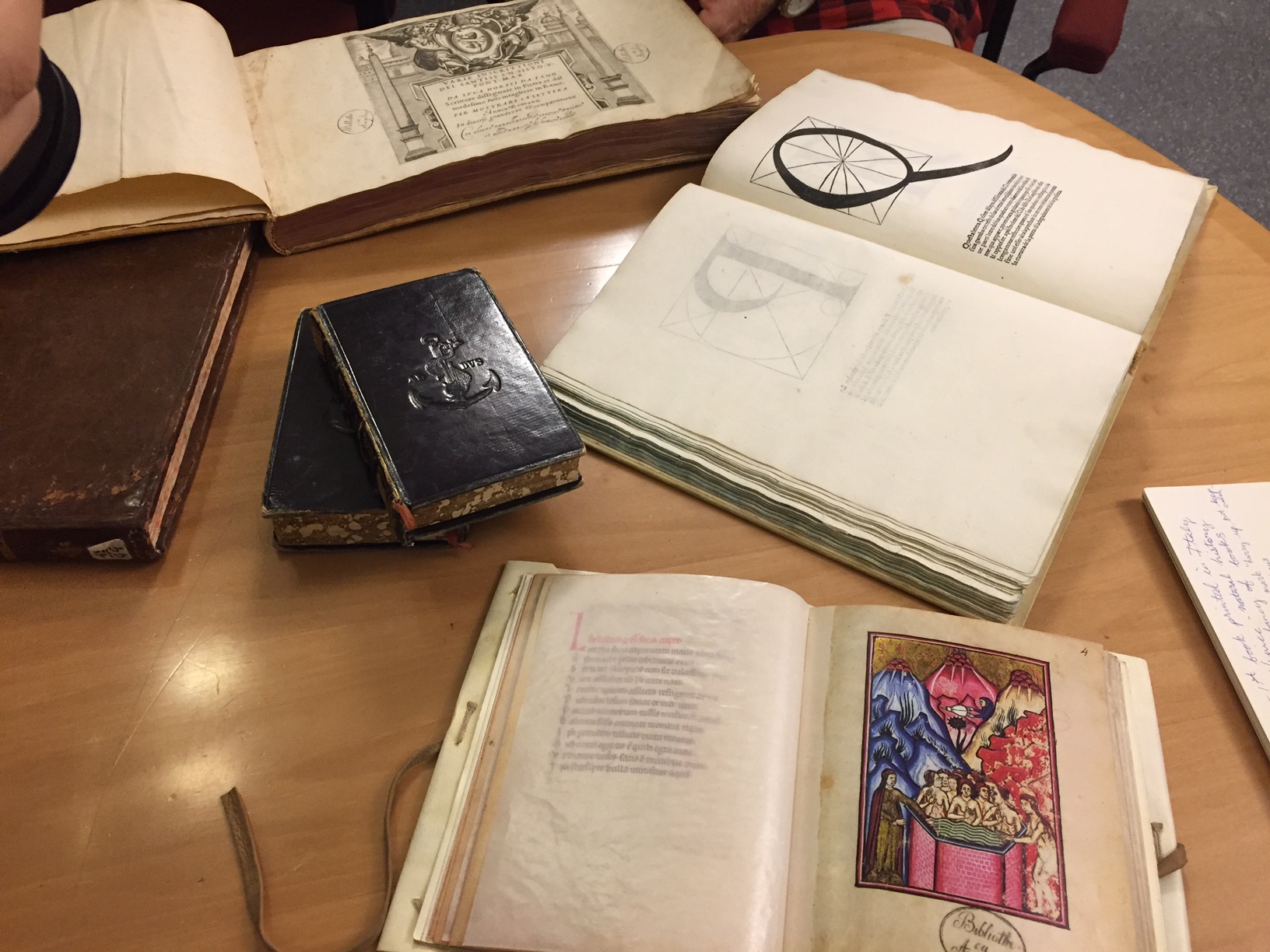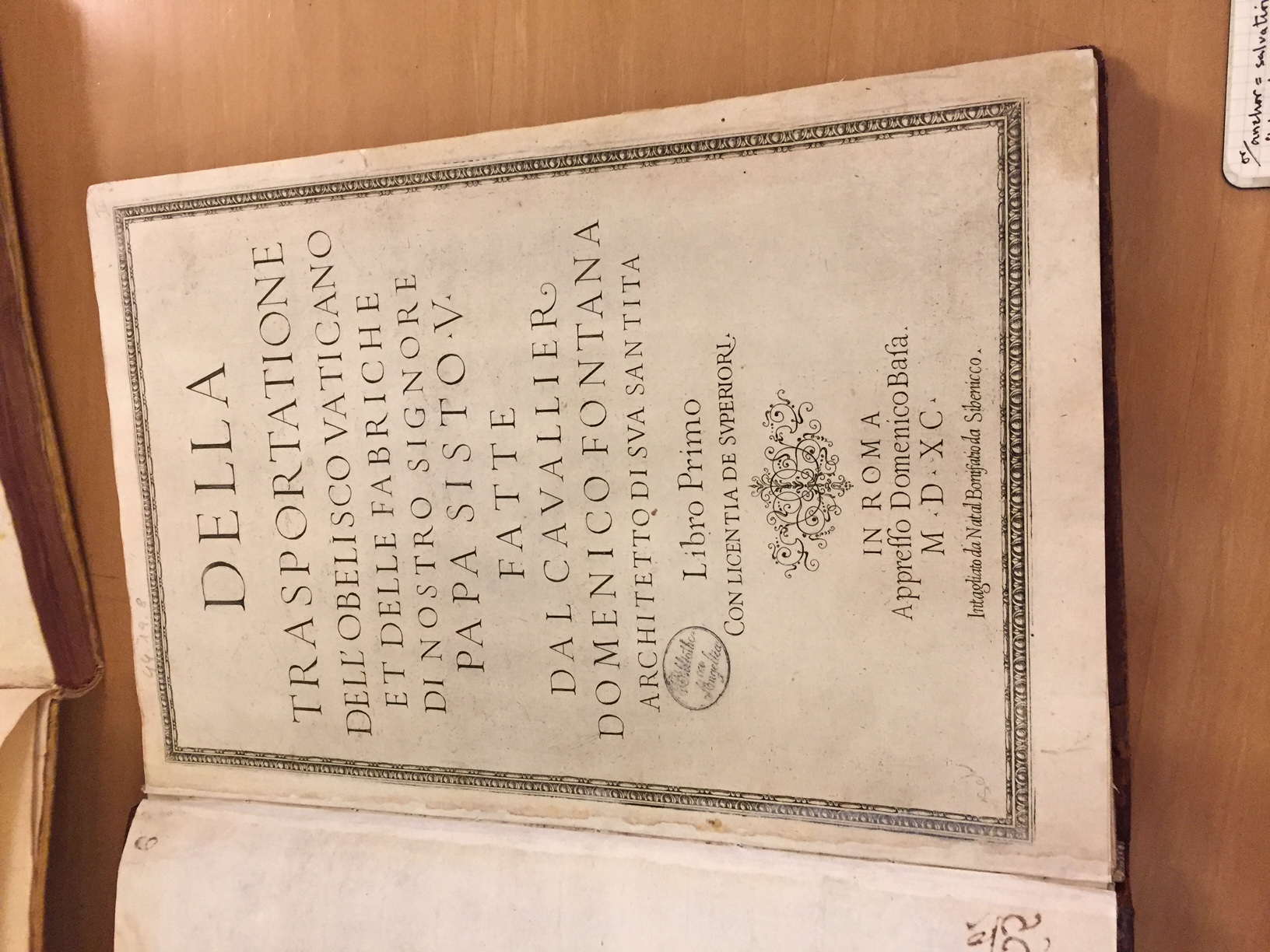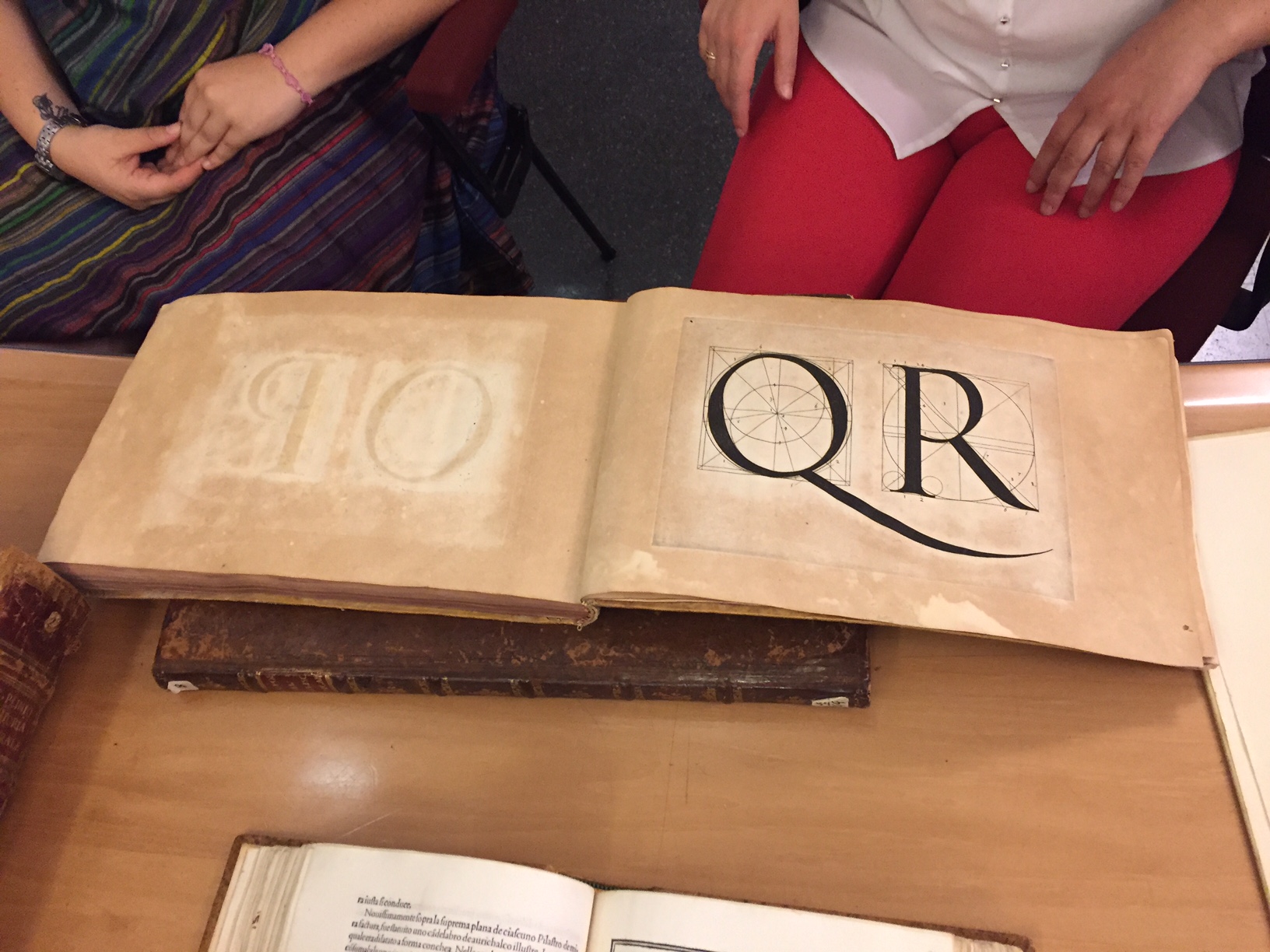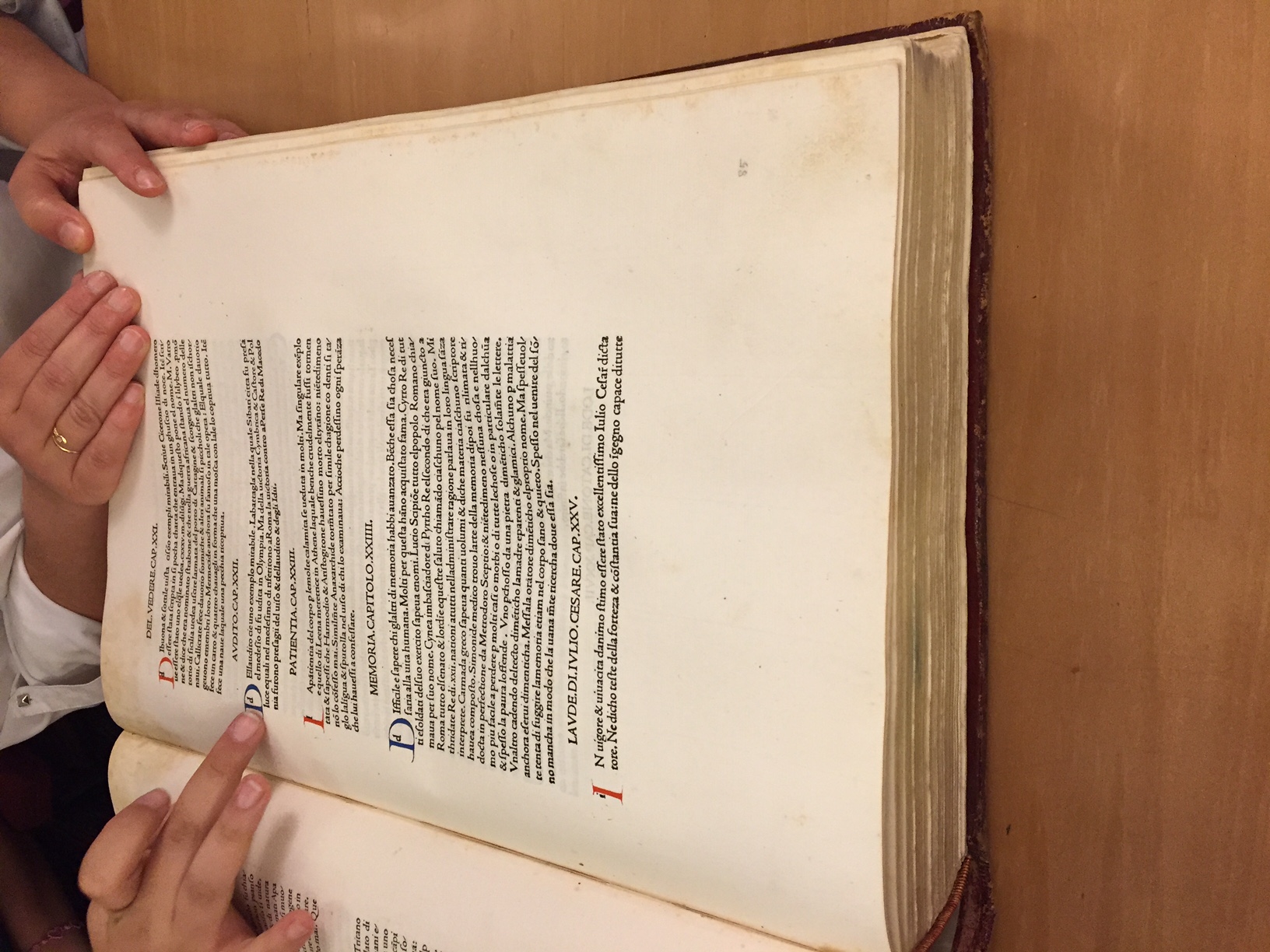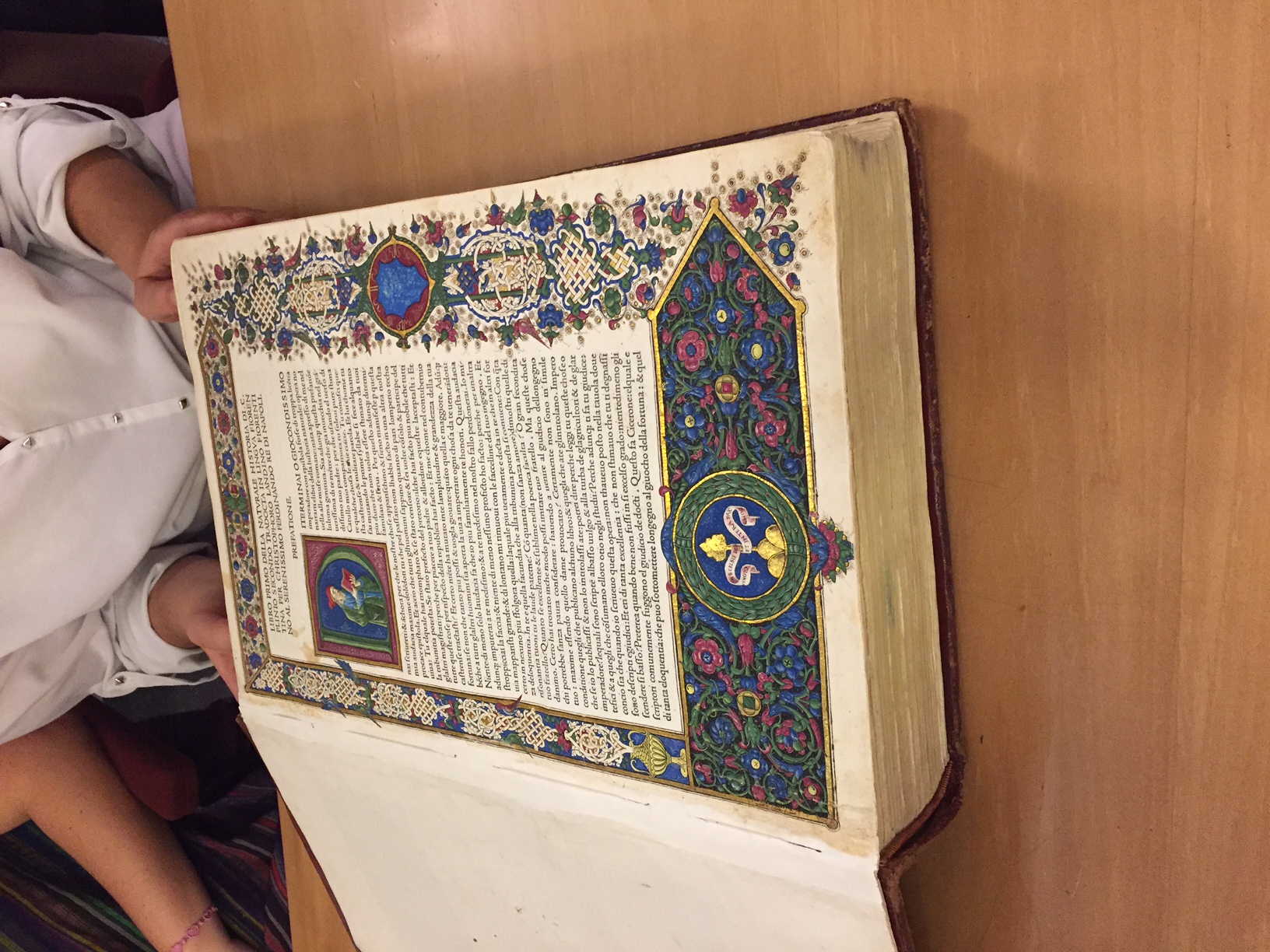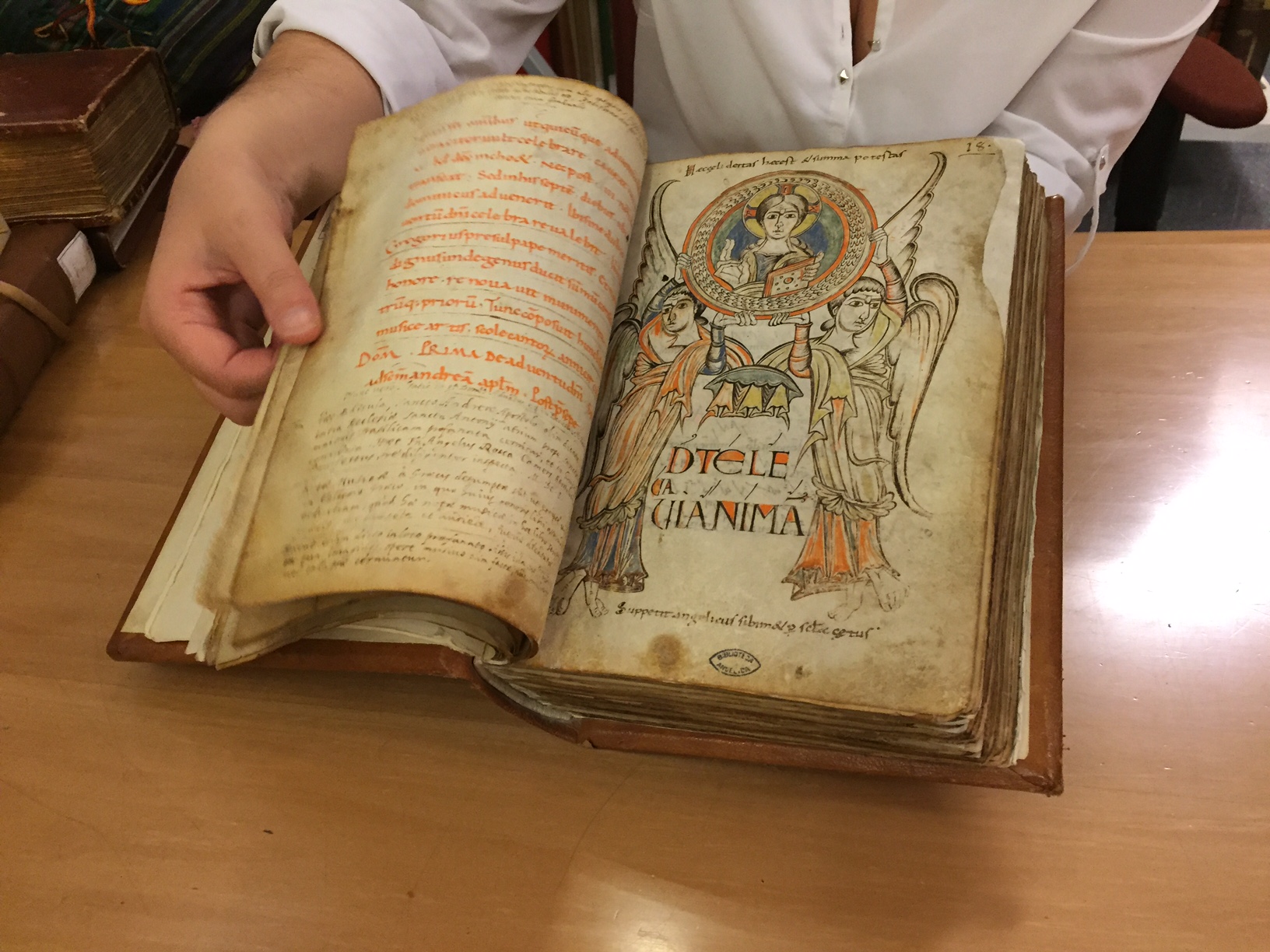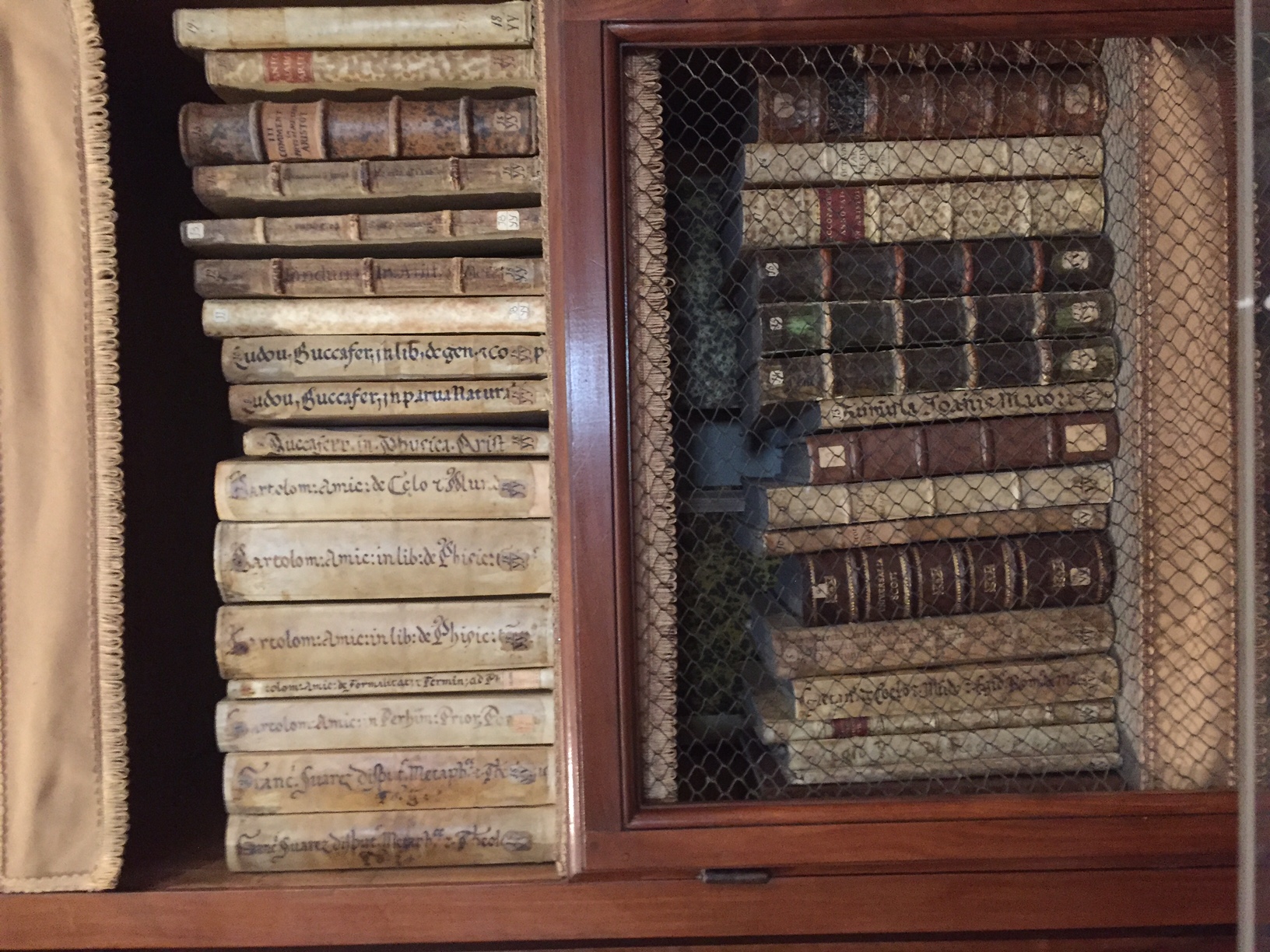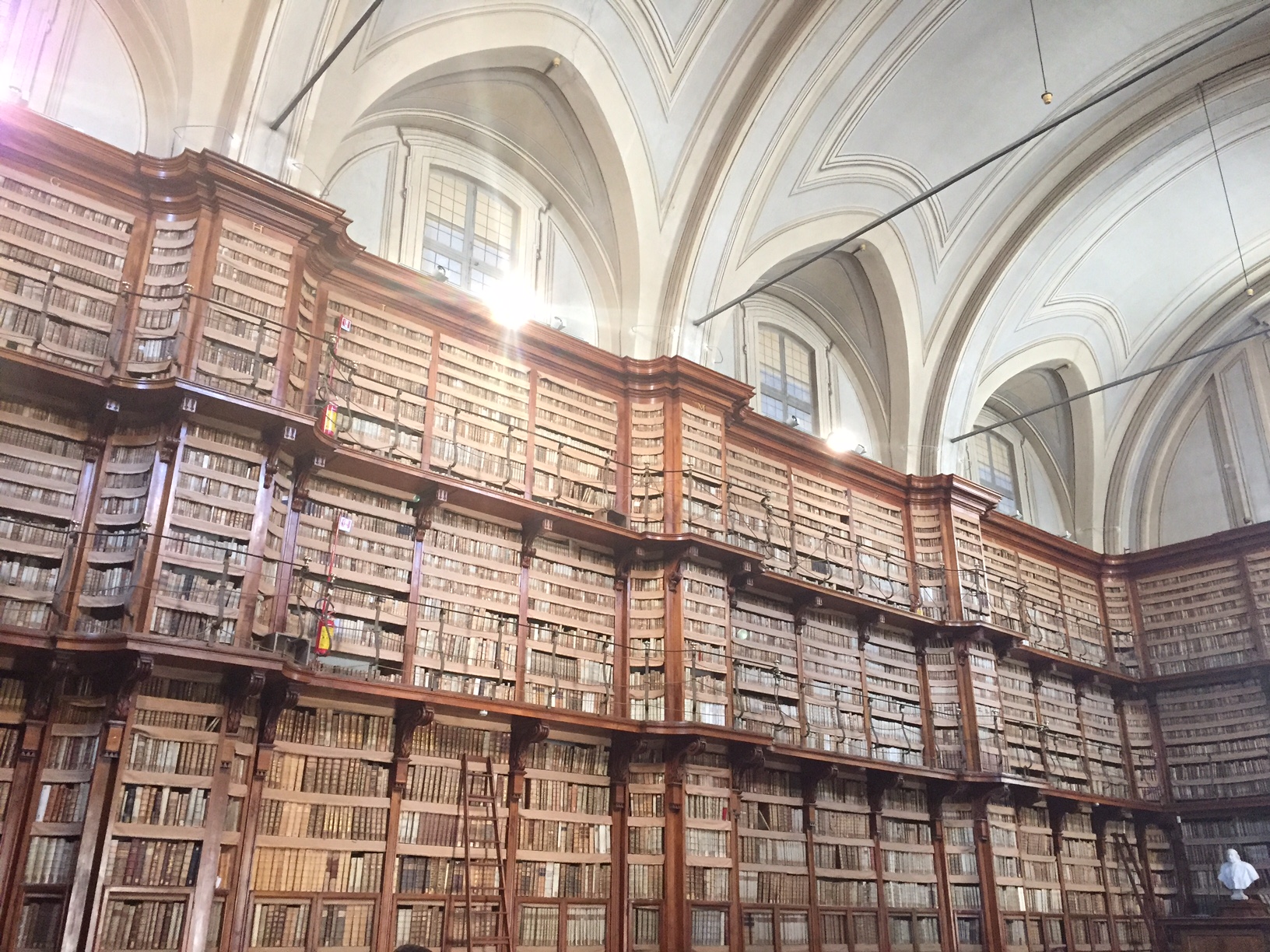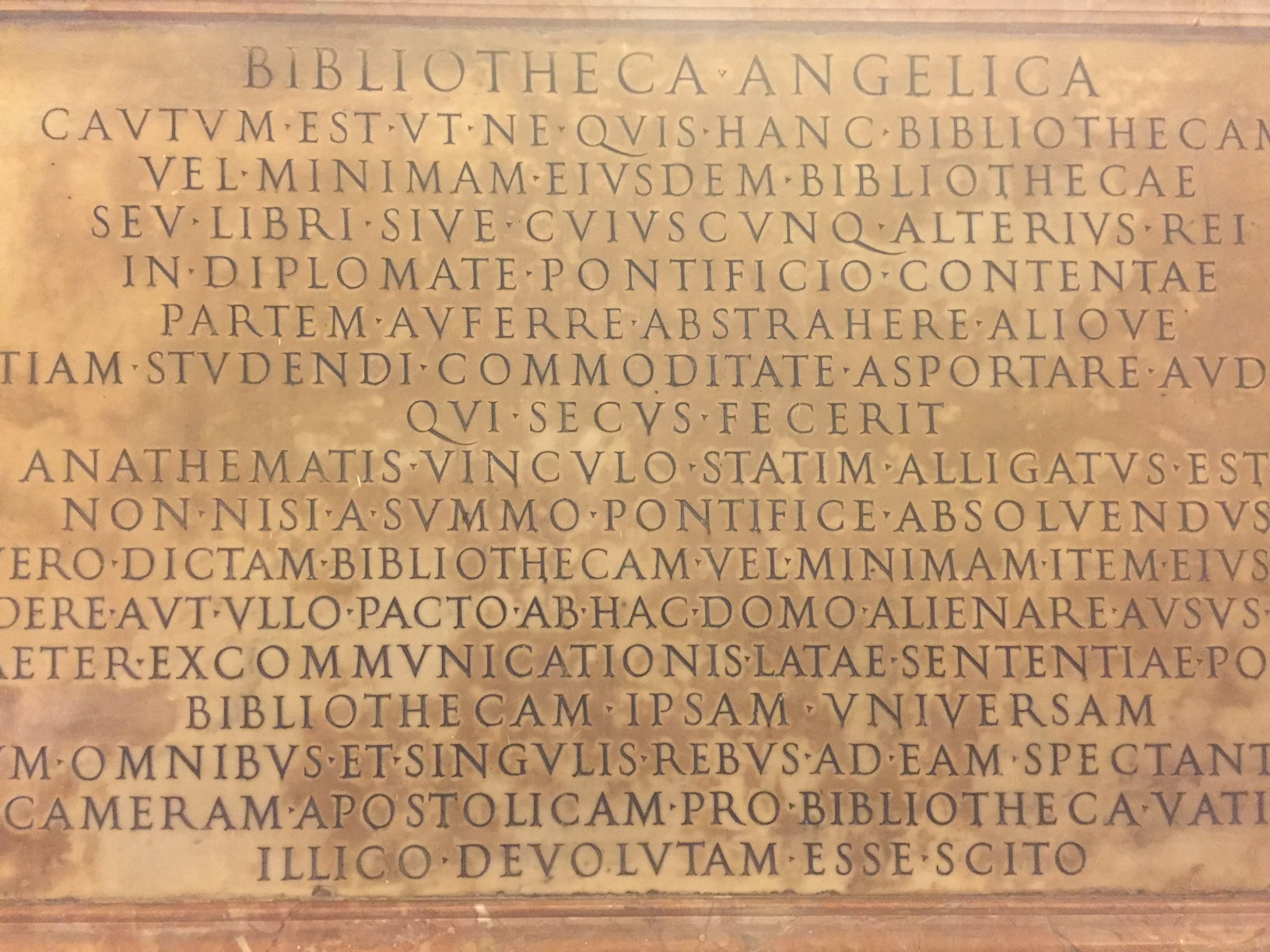Workshop Day 3: Angelo Rocca’s Book Culture
by Francesca
We entered the typically Roman old white stone building to find two Latin marble inscriptions that our guest lecturer, Mauro Zennaro, explained told the story of the Biblioteca Angelica’s founding as one of the first public libraries in Italy (opened 1609) – if not the very first – thanks to the generous donation of Angelo Rocca, a monk of the Augustinian monastery next door, who established the library.
Upstairs, the entryway served as a repository of catalog cards in countless drawers that were not that old but the cards were charming nonetheless (we later found out they also had the original hand-written catalogs maintained by the monks!). Once we entered the main reading room we were taken by the floor-to-ceiling stacks, which upon further inspection revealed countless ancient books – several of which had beautiful hand-written spines.
We were all busy taking photos of every inch of the place when the Director walked through and scolded us for not adhering to the one-photo-only policy we hadn’t understood. At which point we sheepishly followed the librarians into a back room to view some select books they had pulled out for us – and this is when the fun really began.
One-by-one the librarians spread an ancient book after the other out in front of us as we hesitantly tried to capture as many photos as we could get away with of the beautiful writing, illuminations, and print work before us. The books we had the privilege of seeing ranged from a mass songbook from circa 1029 that was written in Carolingian on parchment with unusual musical notations between the lines that had an Arabic calligraphic quality to them, to 16th century printed books that utilized engraving and woodcuts to print both type and illustrations on paper. The array was varied and captivating with the songbook proving to be a group favorite that we asked to see repeatedly to take just a few more photos of its beautiful illustrations punctuated by the most vibrant orange for its ripe age.
Of course the library has not had the resources to complete the digitization of their catalog, never mind of the books themselves (if their also-ancient computers are any indication they probably never will). Treasures like these just need to be experienced in person and are not to be missed! So when in Rome be sure to make this one of your stops and ask the knowledgeable librarians to show you something spectacular – you won’t be disappointed

